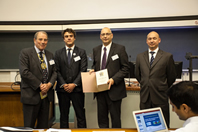Full prize winner details are available from the Armourers and Brasiers' website.
|
2023 - BindEthics This innovative new adhesive is derived from purified and refined industrial bio-waste. It should enable 90 % of engineered wood products, such as furniture and construction boards, to become fully recyclable and help to develop a sustainable circular economy in this sector.
|
|
2022 - ArtioSense, a spin out company of the University of Cambridge New smart sensors which will aid soft tissue balancing and correct positioning of joint implants during surgery. This technology will deliver longer lifetimes for the implants and reducing the need for revision surgery. The first application is likely to be hip replacement surgery but further applications are envisaged, in orthopaedic surgery, sports medicine and beyond.
|
|
2021 - Metasonixx, a spin out company of the Universities of Sussex and Bristol. Acoustic metamaterials that give unprecedented control on sound delivery and noise management.
|
|
2019 - Professor Fiona Karet, Professor of Nephrology at the University of Cambridge and co-founder of Kalium Health, a spinout company of the University of Cambridge. Rapid, low-cost patient-administered test for blood potassium levels. The test can be used at home and has the potential to improve the safety, health and lifestyle of tens of millions of people worldwide.
|
|
Steelworkers will be able to monitor in real time the chemical composition and temperature in molten metal furnaces, for the first time, thanks to a breakthrough technology currently being developed by Kubal-Wraith Ltd.. Recent advances in refractory manufacturing and laser metrology have been adapted and combined to enable continuous monitoring with no break in production. The new technology allows a laser beam to be projected into a molten furnace through a refractory gas-swept channel (tuyère) in the furnace wall, and the latest gas injection techniques are exploited to protect the data channel. Whilst steel plants will be the first market to be targeted, the technology is applicable to other metal making sectors such as aluminium, copper and nickel.
|
|
2017 - Henrik Hagemann and Gabi Santosa, CustoMem Ltd. Development of a novel biomaterial that filters out harmful micropollutants. The granular adsorbent is capable of the specific binding and removing of target micro-pollutants, including pesticides, pharmaceuticals, high performance chemicals and heavy metals, from wastewater. It will be particularly relevant at commercial airports, oil and gas operations and at military installations where there are significant micro-pollutants. CustoMem is based at Imperial College's Incubator and supported by SynbiCITE, the Royal Academy of Engineering, Innovate UK, and Climate-KIC.
|
|
2016 - Professor Geraint Williams, Patrick Dodds and Dr Adrian Walters, Hexigone Inhibitors Ltd, a spinout company of Swansea University. The project team has developed an alternative to hexavalent chromate, the commonly used corrosion inhibitor facing an EU ban in 2019. The replacement technology developed by the team is a material and manufacturing process for a smart release coating which outperforms hexavalent chromate in laboratory tests. The development team believes the new product and process offer a smarter, safer way of reducing corrosion. The technology is environmentally sound, economical and outperforms the market leader in laboratory tests. It creates a stored reservoir of corrosion inhibitor and works by channelling aggressive electrolyte anions into the coating, triggering the release of the inhibitor 'on demand', thus preventing corrosion. |
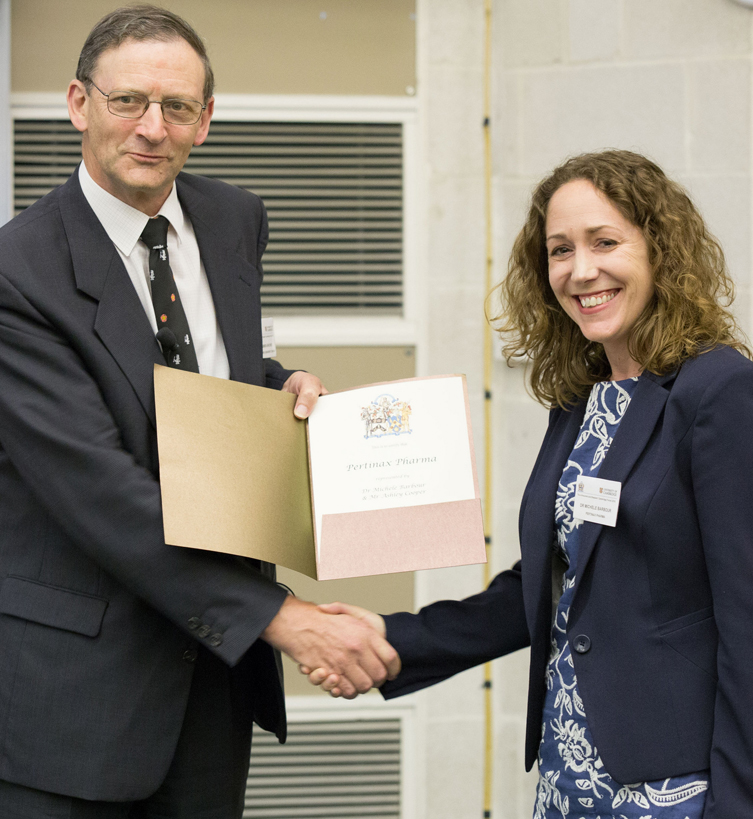
2015 - Dr Michele Barbour, Senior Lecturer in Biomaterials in the School of Oral and Dental Sciences is the Chief Scientific Officer of Pertinax Pharma Ltd, a spinout pharmaceutical company of the University of Bristol. Development of Pertinax, a new formulation of chlorhexidine (an established antimicrobial agent). It is hoped the new formulation will be able to eventually provide protection against antibacterial and antifungal infection for weeks, months or even years. The initial focus will be on the dental market, with other possible applications include catheters and wound care products, which are especially prone to infection by antibiotic-resistant bacteria such as MRSA. Working alongside Dr Barbour in the development of the company is Ashley Cooper, an experienced life sciences chief executive |
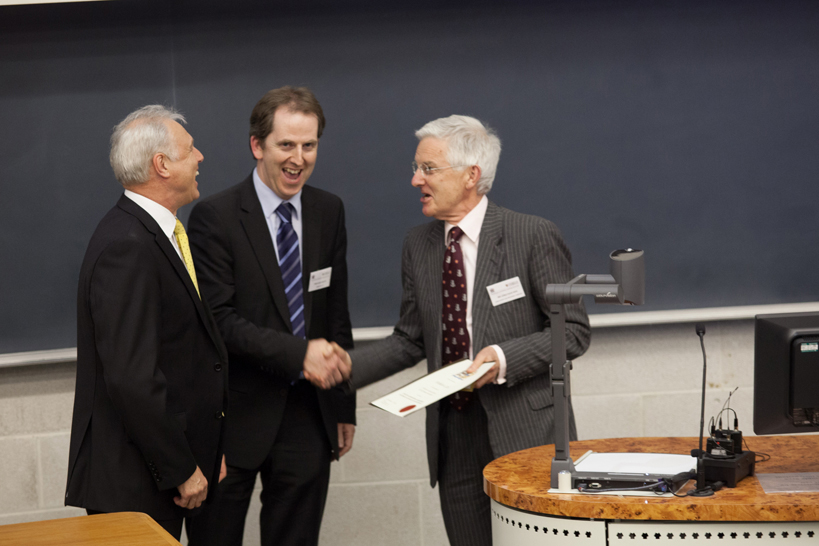
2014 - Prof Iain Gibson, a biomaterials chemist at the University of Aberdeen is principal investigator of the SIRAKOSS MaxSi® Graft technology. The SIRAKOSS MaxSi® Graft technology produces a purely synthetic material that mimics bone. It has the potential to treat many thousands of patients who need spinal fusion surgery for back pain, or repairs for bone injuries. The Prize will progress efforts in achieving regulatory approval for clinical use. The aim is to MaxSi® Graft technology approved for use in patients in two years' time. |
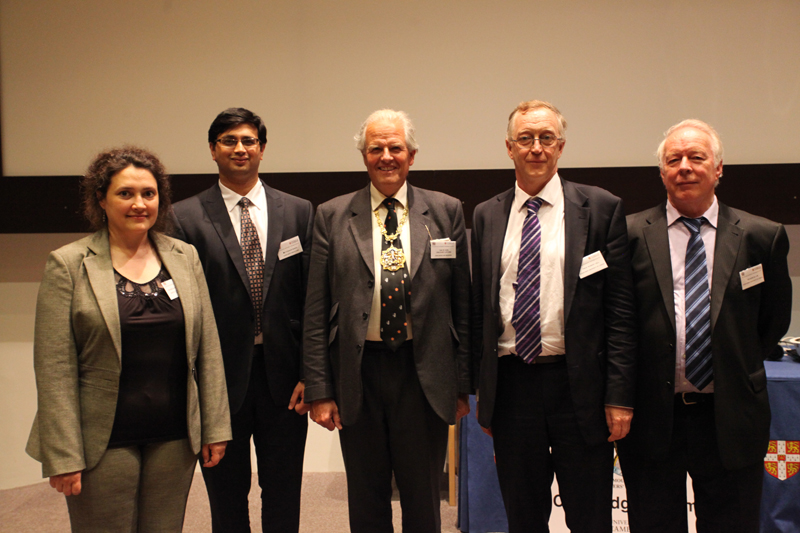
2013 - Professor Robert Hill, Head of Dental Physical Sciences, and Dr Natalia Karpukhina (Barts and the London School of Medicine and Dentistry, Queen Mary, University of London), and Dr David Gillam (Dental Institute, Queen Mary, University of London). (Also pictured is Mr Pushkar Wadke, a representative from Queen Mary Innovations.) Further development of new bioactive particles (that enter holes in teeth, physically blocking and repairing decayed teeth) which are already produced successfully in the laboratory into a prototype toothpaste. |
2012 - Professor Peter Edwards and Dr Vladimir Kuznetsov (Department of Chemistry, University of Oxford) and Dr Jamie Ferguson (Isis Innovation Ltd.) Development of manufacturing processes for transparent conducting oxide (TCO) coatings for new-generation solar photovoltaic cells. |
2011 - Dr Hywel Jones at Sheffield Hallam University's Materials and Engineering Research Institute (MERI) and Dr Anthony Pick (KeramTech) New light-weight, low-cost, environmentally friendly ceramic body armour |
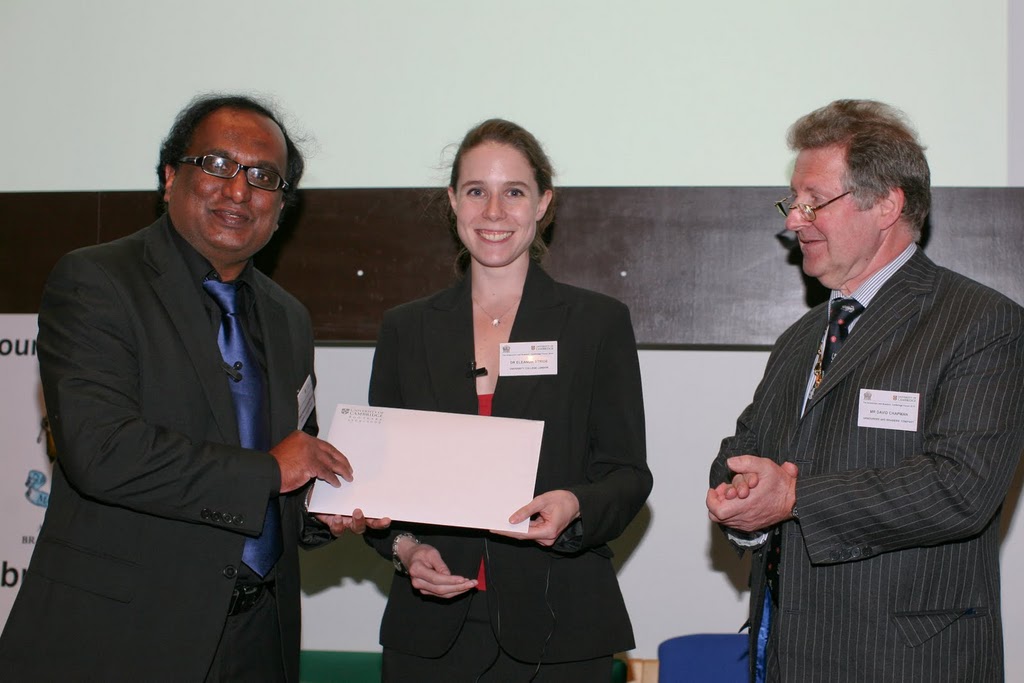
2010 - Professor Mohan Edirisinghe and Dr Eleanor Stride (UCL/Electrocap) Novel methods for the encapsulation of gases, liquids and solids from the nano to the macroscale |
2009 - Dr Rachel Williams and Dr Luke Dawson (University of Liverpool) Nanoparticle silica coatings for prevention of oral thrush |
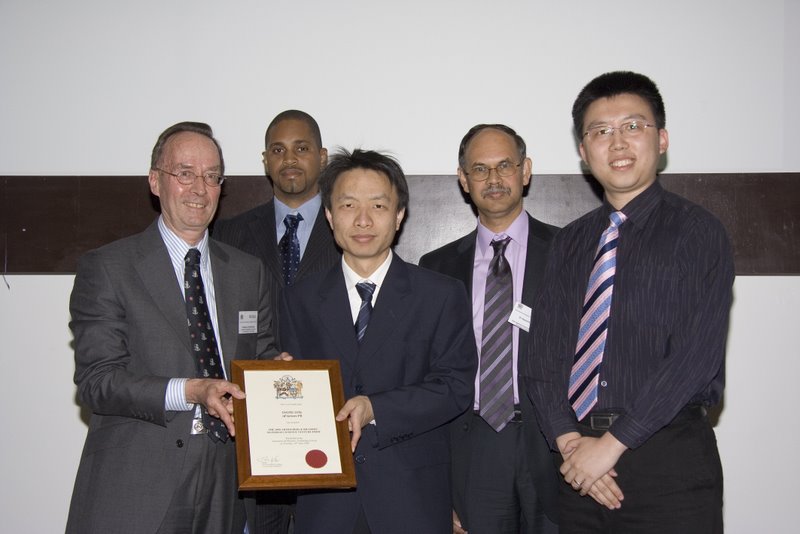
2008- Dr Vasant Kumar, David Zou, Lei Wang and Nigel Williams (Green PB/University of Cambridge) Recycling of lead acid batteries |

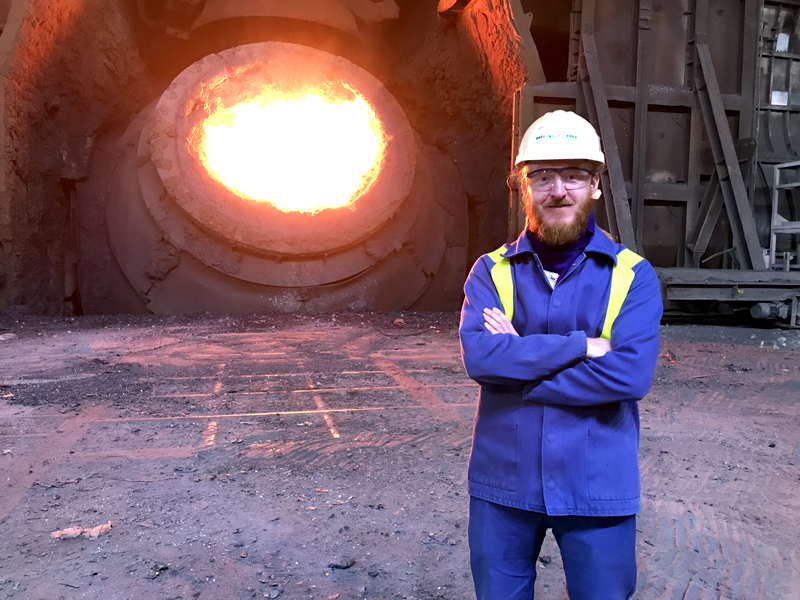 2018 - Dr Szymon Kubal, Dr Cameron Pleydell-Pearce and Dr Adrian Walters, Kubal-Wraith Ltd, a spinout company of Swansea University.
2018 - Dr Szymon Kubal, Dr Cameron Pleydell-Pearce and Dr Adrian Walters, Kubal-Wraith Ltd, a spinout company of Swansea University.